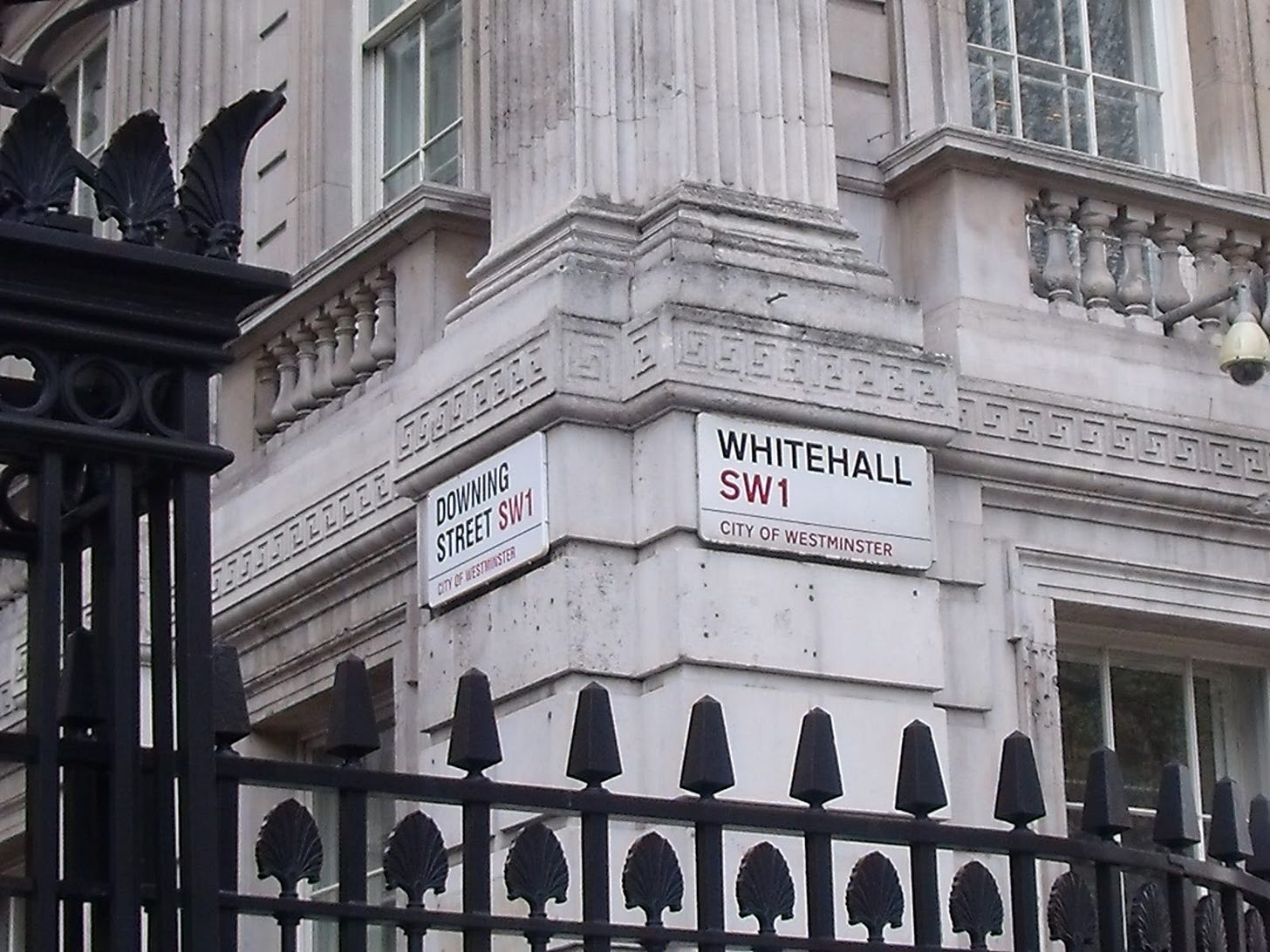Uncivil service?
Why Sue Gray's appointment as Keir Starmer's Chief of Staff is a problem
The announcement that former top Civil Servant Sue Gray has been asked to become Sir Keir Starmer’s Chief of Staff came as a surprise and has sharply divided opinion. Starmer has been reputed to be seeking a former Civil Servant for this role, in order to demonstrate that he is ready for Government; his supporters hail this appointment as a political coup. His opponents in the Conservative Party argue that it calls Gray’s impartiality into question.
As a former Civil Servant myself, I’m certainly not going to have a fit of the vapours about retired officials getting involved in politics. The point here is rather different; most Civil Servants, up to and including most Permanent Secretaries, lead lives of diligent obscurity. What they do after their retirement is unlikely to be a matter of public controversy.
But thanks to her role in investigating the events surrounding the various parties held in 10 Downing Street during lockdown, Sue Gray does not fall into that category - least of all when, with Parliamentary inquiries into those events yet to take place, the matter is a very long way from being closed. Conservative MPs have lost no time in taking to Twitter to claim this “proves” that Sue Gray’s investigation was not impartial, with some even claiming, with an impressive disdain for logic, that it suggests she was working under cover for the EU all along. There is now a question of whether the Government would use the Advisory Body on Business Appointments to block the move.
This matters, because the Civil Service has been under sustained attack for a long time from the Tory right and their allies, especially since Brexit. It goes beyond the allegations of bullying by Priti Patel or Dominic Raab, or even Liz Truss’ sacking of Tom Scholar, Permanent Secretary to the Treasury, for apparently political reasons; it is about the ability of Civil Servants to carry out their job of giving impartial advice to Ministers, which means, first, reminding them of the constraints imposed on them by the law, and, second, being prepared to tell them things that they would rather not hear. In my day in the Civil Service, it was often said that one of your first duties was to keep your Minister out of Court - not least because democracy meant that political decisions should be taken in Parliament rather than by Judges. But at least the Courts were there to uphold the law in the final instance.
Instead, the hard-core Brexiters in particular have taken to claiming that Civil Service advice that Ministers’ plans are not workable, or are going to have downsides, or may be in breach of legal obligations, are symptoms of a culture of opposition to the Government of the day, or even of being - to use the Tories’ insult of choice - “woke”. The values set out in the Civil Service code - of advice without fear or favour, of working within the law - have, under Brexiter Conservatism, become impediments to a crudely populist majoritarian view of democracy.
The undermining of the Civil Service is a key part of what many people would argue is the existential crisis that the Westminster system is facing. Liberal democracy requires a strong, functioning Civil Service that can advise without fear or favour, and that takes every opportunity to remind Ministers that they, as much as anyone else, are subject to the rule of law. Authoritarian government happens when state bureaucracies are weak, or politically compromised.
And, by making this appointment, Starmer has made things worse. I have no idea what induced Gray to accept this post - although it’s obvious that she was disgracefully used by Boris Johnson, forced to provide a human shield for Johnson’s wrongdoing and then sidelined - but surely she can see how dangerous it is for the Service, and even for Constitutional government. She must be aware that it gives a free pass to those who want to undermine the Civil Service, and to the populism that seeks to exercise political power without constitutional restraint. It shows, if nothing else, little regard for the plight of those she leaves behind.
It’s a decision that also raises questions about Starmer’s judgement. In the short-term, this appointment has caused a seven-day wonder but its long-term consequences seem calclulated to make a deep-seated problem worse. It seems to be shot through with the superficial cleverness of the Special Adviser, without an understanding of the bigger picture. As Prime Minister, after all, he will be the Minister for the Civil Service; he’s going to have to deal with a demoralised service, traumatised by the experience of the Brexit years. Civil Servants, no less than nurses or teachers, are exhausted by the constant undermining. If he’s serious about repairing the damage wrought by the post-2016 chaos, Starmer needs to do a lot better than this.


Nice piece.